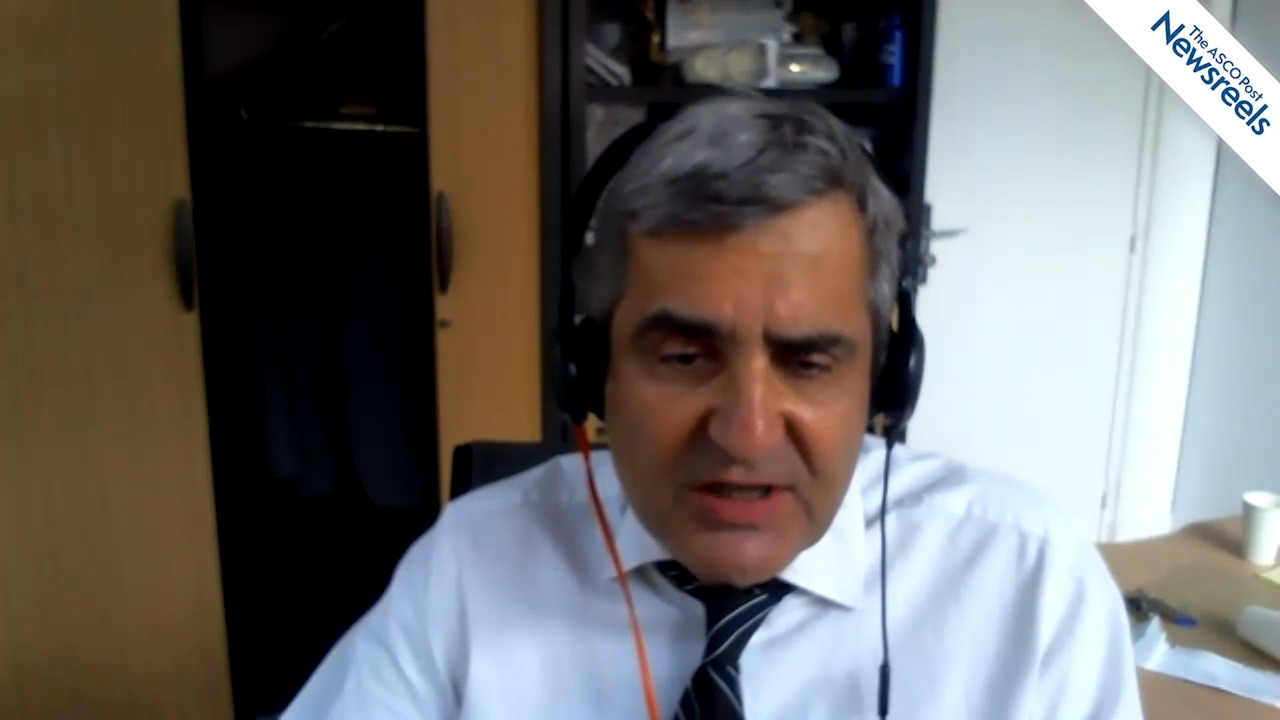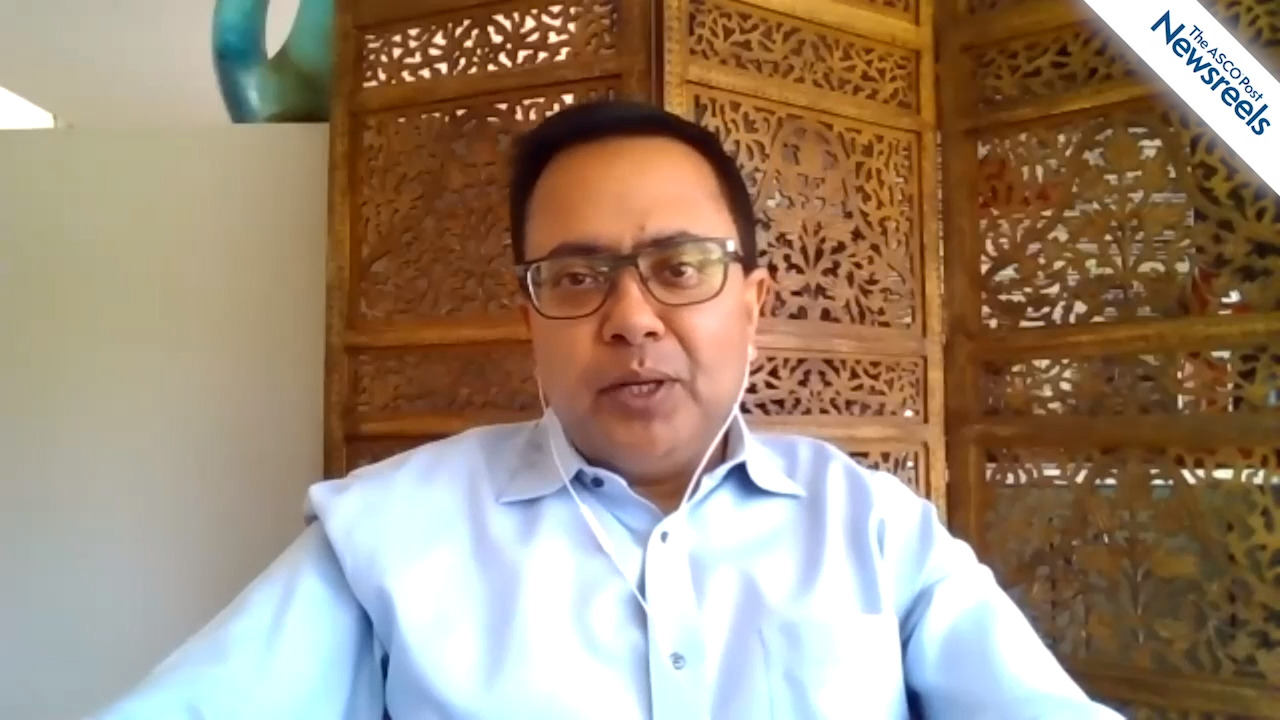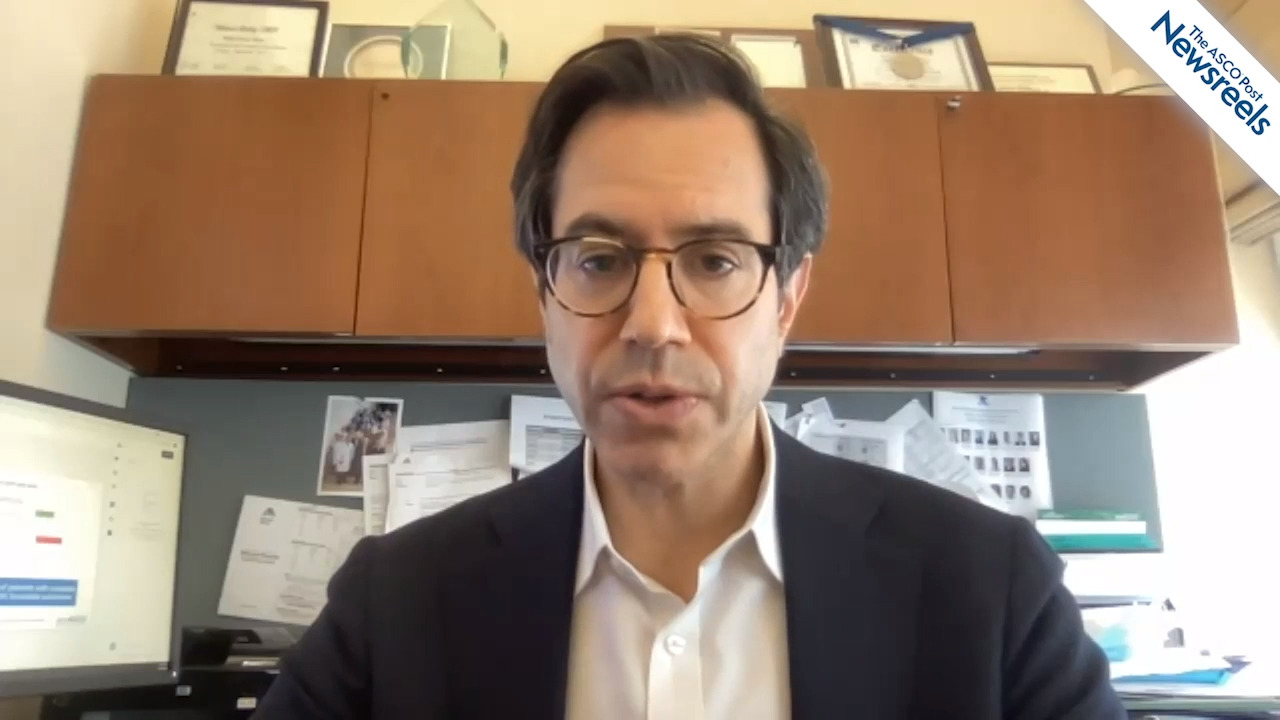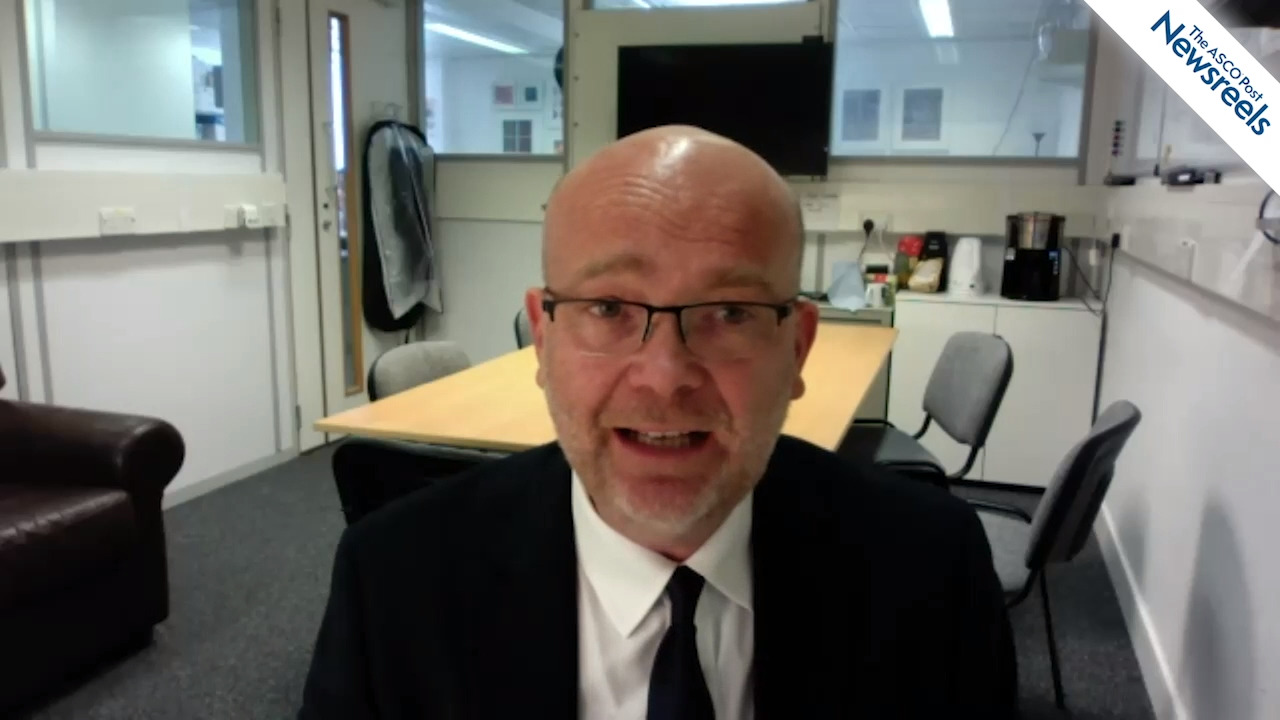Neeraj Agarwal, MD, on Treatment Patterns and Disparities in Patients With Prostate Cancer
2021 ASCO Annual Meeting
Neeraj Agarwal, MD, of Huntsman Cancer Institute at the University of Utah, discusses three studies that examined real-world treatment patterns and utilization of advanced therapies in men with metastatic castration-sensitive prostate cancer, which served to highlight the ways in which Black men may be treated differently (Abstracts 5072, 5073, 5704).
The ASCO Post Staff
Thierry André, MD, of Hôpital Saint-Antoine, discusses final overall survival data for the phase III KEYNOTE-177 study, which confirmed pembrolizumab as a new standard of care for first-line treatment of patients with microsatellite instability–high/mismatch repair–deficient metastatic colorectal cancer (Abstract 3500).
The ASCO Post Staff
Neeraj Agarwal, MD, of Huntsman Cancer Institute at the University of Utah, discusses phase III data from the SWOG S1216 trial, which evaluated the clinical benefit of using androgen-deprivation therapy with either orteronel (or TAK-700, a CYP17 inhibitor) or bicalutamide in patients with newly diagnosed metastatic hormone-sensitive prostate cancer (Abstract 5001).
The ASCO Post Staff
Matt D. Galsky, MD, of the Tisch Cancer Institute at Icahn School of Medicine at Mount Sinai, discusses results from a phase II trial designed to test gemcitabine and cisplatin plus nivolumab as neoadjuvant therapy in patients with muscle-invasive bladder cancer and to better predict benefit in those who opted out of cystectomy (Abstract 4503).
The ASCO Post Staff
Sibylle Loibl, MD, PhD, of the German Breast Group, discusses results from the phase III GeparNUEVO study, which investigated neoadjuvant durvalumab in addition to anthracycline/taxane-based neoadjuvant chemotherapy in patients with early triple-negative breast cancer (Abstract 506).
The ASCO Post Staff
Andrew Tutt, PhD, MBChB, of the Institute of Cancer Research, London, discusses findings from the phase III OlympiA trial, which showed that adjuvant olaparib, a PARP inhibitor, following adjuvant or neoadjuvant chemotherapy, may improve invasive disease–free survival in patients with germline BRCA-mutated and high-risk HER2-negative early breast cancer, which might lead to a new indication in this setting (Abstract LBA1).





